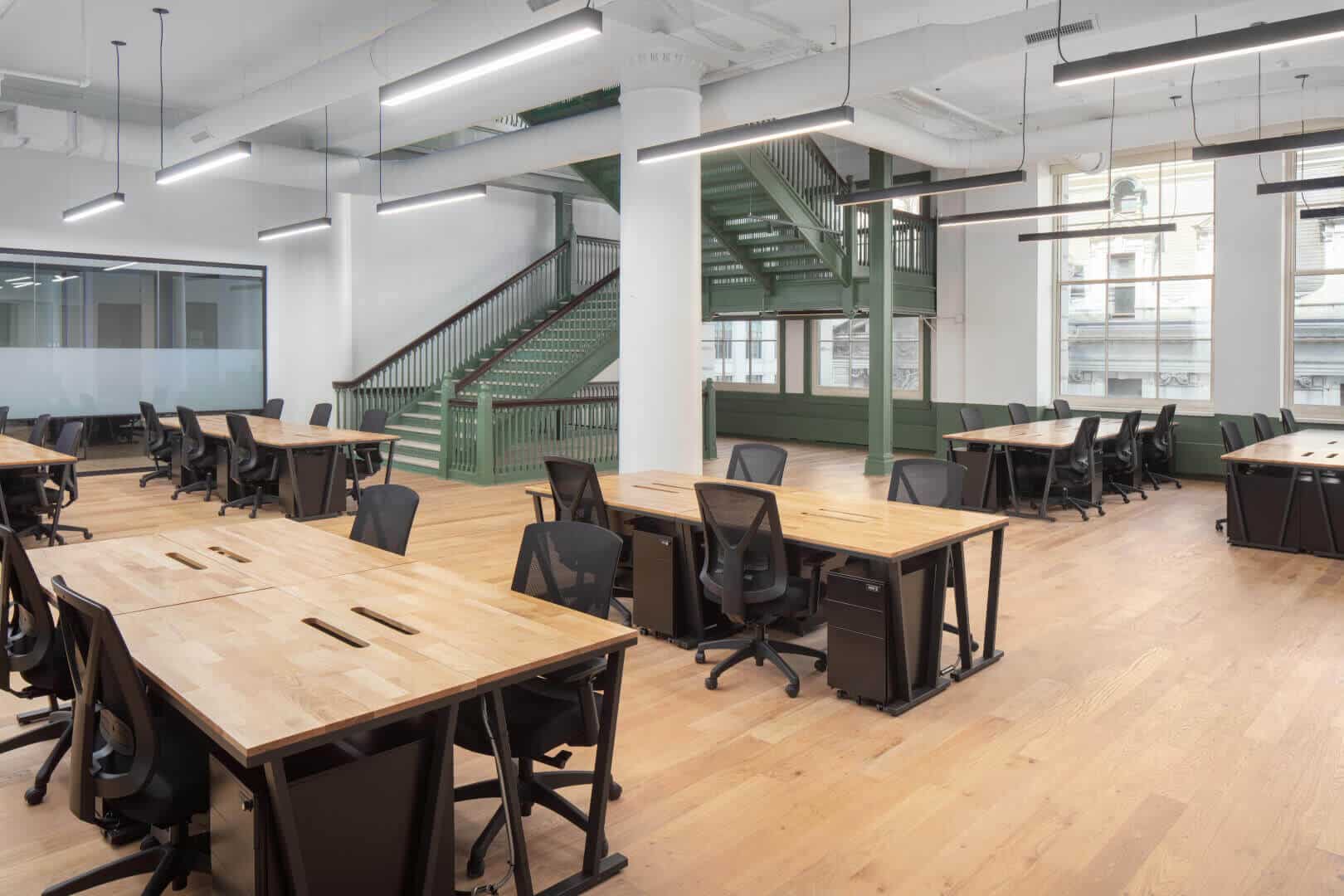
How Small Businesses Are Winning the Talent War with Hybrid Work Policies
In today’s job market, small businesses have to get creative to attract top talent. With bigger companies often offering larger salaries and extensive benefits, smaller businesses need to highlight their own unique advantages. One of the best ways to do this is by embracing hybrid-friendly work policies.
More and more professionals are prioritizing flexibility when choosing where to work. They want the ability to balance their personal and professional lives, and a rigid 9-to-5, five-days-a-week office job doesn’t always cut it.
Why Hybrid Work is a Game-Changer for Small Businesses
Hybrid work allows employees to split their time between working remotely and being in the office. It’s a model that benefits everyone and workers get the flexibility they want, and businesses get happier, more productive employees. For small businesses, this approach offers some real advantages.
First, it allows access to a much broader talent pool. Without being limited to hiring in a single location, businesses can bring in skilled professionals from anywhere. This means small companies can compete with bigger organizations for top-tier talent without the need to maintain expensive office spaces in major cities. According to a CoworkingCafe study, cities like Austin, Miami, Denver, and Nashville have become hotspots for small business growth, with vibrant communities and thriving startup ecosystems making them attractive places to recruit talent.
Hybrid work also leads to better employee retention. When workers have more control over their schedules, they’re less likely to feel burned out and more likely to stick around long-term. Happy employees mean lower turnover, which ultimately saves businesses time and money in hiring and training replacements.
Another key advantage is cost savings. Businesses can cut down on office-related expenses by reducing the size of their physical space or even switching to a coworking space instead of maintaining a traditional office. Many companies in cities like New York and San Francisco are opting for coworking spaces as a flexible and budget-friendly solution, reducing the need for expensive office leases while still providing employees with a professional work environment.
Best Practices for Implementing Hybrid Work Policies
Making hybrid work successful takes more than just letting employees work from home a few days a week. It requires clear policies, the right technology, and a company culture that supports flexibility. Here are some best practices to consider:
1. Define Clear Expectations
Employees need to know when they’re expected to be in the office and what their remote work responsibilities are. Setting clear guidelines on availability, communication, and performance expectations helps keep everyone on the same page. Whether it’s requiring in-person attendance for certain meetings or establishing core work hours for team collaboration, being upfront about expectations makes hybrid work smoother for everyone.
2. Invest in the Right Tools
A successful hybrid setup requires the right technology. Video conferencing platforms, messaging apps, and project management tools help teams stay connected, even when they’re not in the same physical space. Businesses should also ensure employees have access to the hardware and software they need. Whether that’s providing laptops, reimbursing for high-speed internet, or offering coworking space memberships for those who prefer not to work from home. In places like Miami, coworking spaces provide top-tier amenities for hybrid teams looking for flexible yet professional environments.
3. Prioritize Communication
When some team members are remote and others are in the office, it’s easy for communication gaps to form. Regular check-ins, virtual team meetings, and clear documentation of decisions can help keep everyone aligned. Creating a culture where employees feel comfortable reaching out, whether through quick messages or scheduled calls, ensures that no one feels isolated or left out of important discussions.
4. Create a Culture of Trust
One of the biggest concerns some leaders have about hybrid work is productivity. But micromanaging isn’t the answer. Instead, focus on results rather than hours worked. When employees are trusted to get their work done without constant supervision, they often feel more motivated and engaged. Encouraging autonomy while offering support when needed is key to making hybrid work successful.
5. Offer Flexible Workspaces
Not everyone thrives working from home, and not everyone wants to commute to an office every day. Providing employees with options, whether that’s access to a coworking space, a stipend for home office setup, or occasional in-person collaboration days, can make a big difference. Meeting spaces in shared offices can also be a great solution for teams that need to come together periodically for brainstorming sessions or client meetings.
6. Maintain a Sense of Team Connection
One potential downside of hybrid work is the risk of employees feeling disconnected from their coworkers. That’s why it’s important to create opportunities for team bonding. Regular virtual coffee chats, casual check-ins, and work social event ideas like trivia nights or in-person meetups can help build strong relationships, even in a hybrid setting. Cities like New York and San Francisco have seen a rise in coworking social events that bring remote employees together for networking and collaboration.
7. Provide Professional Development Opportunities
Employees want to grow in their careers, and hybrid work shouldn’t mean missing out on learning opportunities. Offering virtual training sessions, mentorship programs, or even stipends for online courses can show employees that their growth matters. Encouraging in-person networking events or using a coworking space in the city for workshops can also be great ways to foster professional development.
The Role of Coworking Spaces in Hybrid Work
Coworking spaces have become a valuable resource for businesses adopting hybrid models. These spaces offer the best of both worlds: providing a professional work environment with office amenities while allowing employees to choose when they want to use them.
For companies without a traditional office, coworking spaces offer flexible options, from shared desks to private offices. Employees who prefer working in a structured environment can benefit from access to fast Wi-Fi, meeting rooms, and networking opportunities with other professionals. It’s no surprise that coworking trends continue to rise, as more businesses recognize the advantages of having a flexible office solution. Many of the best coworking spaces in Miami, Washington D.C., and Philadelphia are seeing increased demand as businesses adapt to hybrid work models.
In cities with growing hybrid work communities, such as Philadelphia, coworking spaces are helping small businesses create professional yet flexible work environments. Notably, Philadelphia experienced a 9% increase in coworking spaces during the third quarter of 2024, adding 13 new locations to its inventory.
Final Thoughts
Hybrid-friendly work policies aren’t just a nice-to-have, they’re quickly becoming a necessity for businesses looking to attract and retain top talent. Small businesses that embrace flexibility can stand out from the competition, offering employees the work-life balance they crave while benefiting from increased productivity and cost savings.
By setting clear expectations, providing the right tools, and fostering a strong company culture, small businesses can make hybrid work a lasting success. And for those looking for workspace inspiration, coworking spaces provide the perfect balance between structure and flexibility, making them a great option for hybrid teams.
As work continues to evolve, companies that adapt to these changes will be the ones that thrive in the long run.






